In February and March 2018, Equitable Origin (EO), in collaboration with the Roundtable on Sustainable Biomaterials (RSB) and the Coordinating Organization of Indigenous Peoples of the Amazon Basin (COICA) conducted the second and third workshops in a series of three workshops about Free, Prior and Informed Consent (FPIC) as part of a project funded by the ISEAL Alliance Innovation Fund. The first workshop took place in Mocoa, Colombia, in October 2017. The latter two workshops took place in Iquitos, Peru and Lago Agrio, Ecuador, respectively, and were attended by a total of 40 participants comprising key representatives of regional indigenous community associations and federations. The objectives of these workshops were to better understand how Indigenous Peoples define an effective Free, Prior and Informed Consent (FPIC) process, how they can be empowered to actively participate in these processes, and how they can monitor if FPIC is being implemented responsibly. For background information on the project, see our earlier blog post.
The workshop in Peru, engaged participants in exploring the topic of FPIC through discussion, practical exercises and role play. The workshop also benefited from a session presented by a representative from Peru’s Ministry of Culture, who clarified how FPIC is supported in Peruvian law, what the FPIC process is according to the state mechanism, and how the government is building capacity both at the national and community levels to improve the efficacy of these processes. The workshop offered a number of key insights as to how an FPIC process needs to be conducted according to Indigenous Peoples’ existing decision-making mechanisms and expectations. The final workshop took place in Ecuador, and helped us to corroborate and build on the findings from Peru.
While international standards require that communities be engaged from the outset in a participatory manner that allows them to co-design the subsequent stages of the process, we have found that community leaders are often not clear on what steps an FPIC process should include, nor aware that they have the right to co-lead this process. Insights from all three workshops have emphasized the need for Indigenous Peoples to be better prepared in advance of FPIC processes, so that they can participate in the most effective way possible.
The information gathered from these workshops will now inform the development of a monitoring framework and tool that project stakeholders can use to verify FPIC. This tool will be aimed not only at auditing the outcomes of FPIC processes, but also verifying the credibility of the process itself, including the preconditions required to ensure that a community has been able to participate from the outset in an equitable manner.
Creating a platform of sustainability and autonomy for Indigenous Peoples to play a proactive role in and to be able to benefit from development is at the heart of EO’s values, so we were privileged to have been invited by these communities to workshop our ideas on how to improve FPIC processes in large-scale energy, infrastructure, agricultural and extractives projects.



